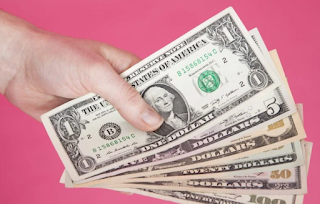
This article is specially written for young graduates who have just secured their first posting. In life, we have more needs and wants than our limited income. It is essential to budget and avoid overspending. Overspending means getting into debt and more problems.
- Keep a record: For a start, find out your current financial situation. Are you in debt? Congratulate yourself if you are debt-free. If not, your top priority is to get rid of your debt as soon as possible. Discovering your own net worth, finding out your earning potential, and checking your spending pattern is your first step towards personal financial management.
- Plan ahead: The next step is to design a budget. If you are in debt, incorporate debt settlement into your monthly budget. The main aim is to clear your debt as soon as possible. The longer you delay, the more interest is added and the more you have to pay The second thing is that your monthly expenses should not exceed your income (with debt repayment included), or else you will be adding new debt every month and there will no end in sight to settle fully your debt
- Follow the plan: Now that you have your monthly budget, you have to stick to it faithfully in order to achieve your goal of debt settlement.
- Save: As soon as you are debt-free you have to use the same amount of money or even more ( you will get pay increments and bonuses anyway)to save for several specific purposes:
- Down payment for your first car
- Down payment for your first house
- Emergency fund
- Investment
- Plan for retirement and children’s education early: The earlier you set aside an amount the less you will need to budget because compound interest will work wonder for you in the long term
- Avoid wants: Don’t do impulsive spending over and above your budget. If you want something to save for it and buy in cash. Exercise your self-control and willpower.
- Avoid credit: Use a debit card or prepaid card instead of a credit card to get the hang of using plastic cards. Just remember credit cards are for convenience and not for the purchase of things on credit. Credit means debt and debt means bankruptcy.
- Major purchases: A car and your own home are major purchases in life. In most cases, you need financing to get them. However, when you have already put aside an amount for these purposes, it will be easier on your monthly budget The bigger down payment you can make means the less you will need to borrow and the less interest you will need to service and the less you will need to pay for your monthly installments. It also means a shorter period to settle the loan.
- Manage your debt: By now you must have incorporated your monthly payments for your car and house into your monthly budget. If it is not within your budget you will have to give up one or the other. Go for it only when you have saved for a bigger down payment for the item you cannot afford. Pay your monthly installments promptly to build a good credit record. When you need a loan in the future your creditworthiness will work in your favor.
- More income streams and fewer expenses: The aim of personal finance is financial freedom. The prudent way is to identify more income streams and especially passive income because you don’t have to work for it. At the same time, you will have to spend wisely within your means.
Managing personal finance is a balancing act. When you spend more you will have less to save and when you allocate more in one area you will have less in other areas.
Whatever you do spend less than what you have earned.
Source: http://www.allaboutlivingwithlife.blogspot.com/2010/06/10-vital-tips-to-manage-your-personal.html









